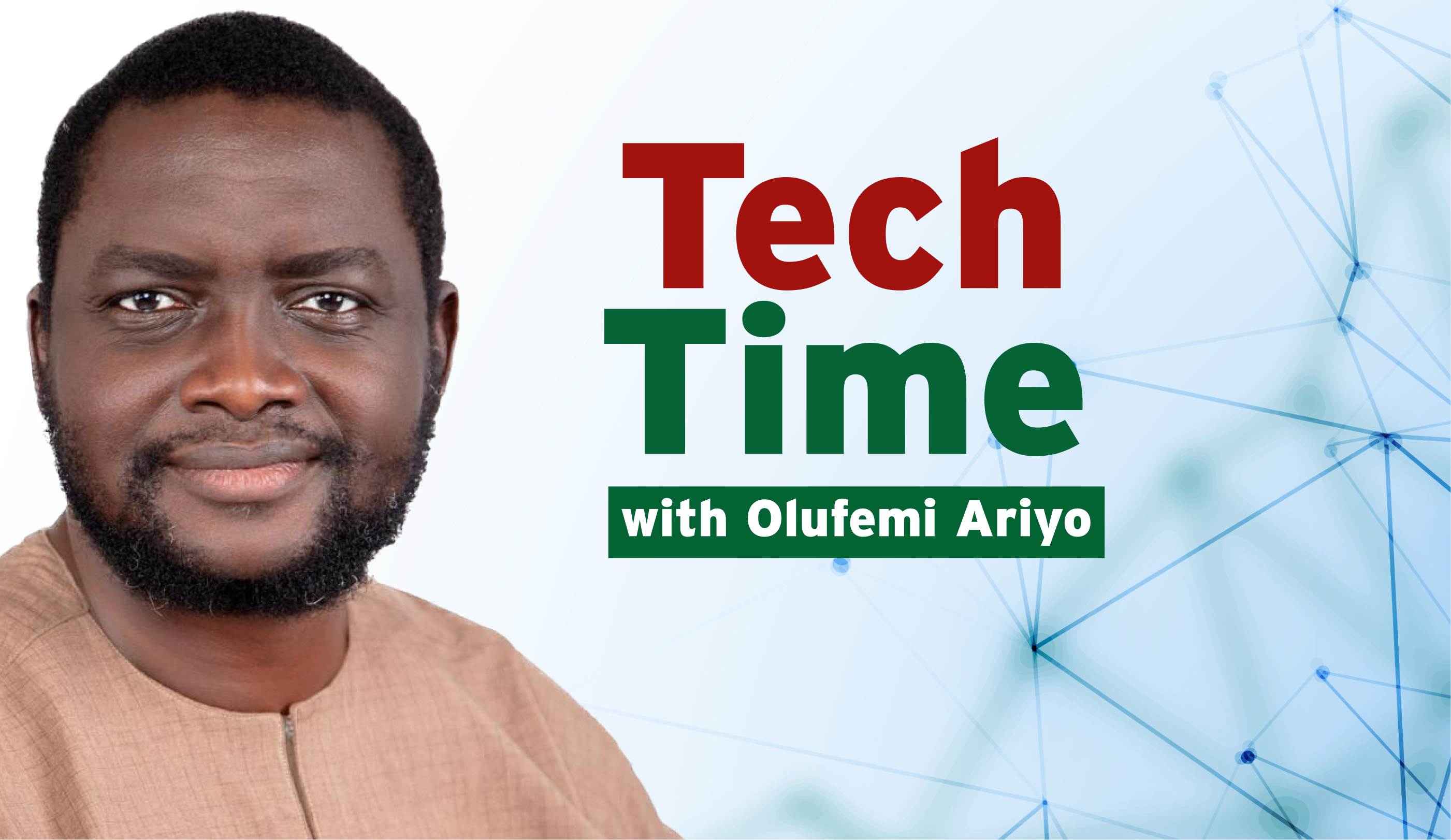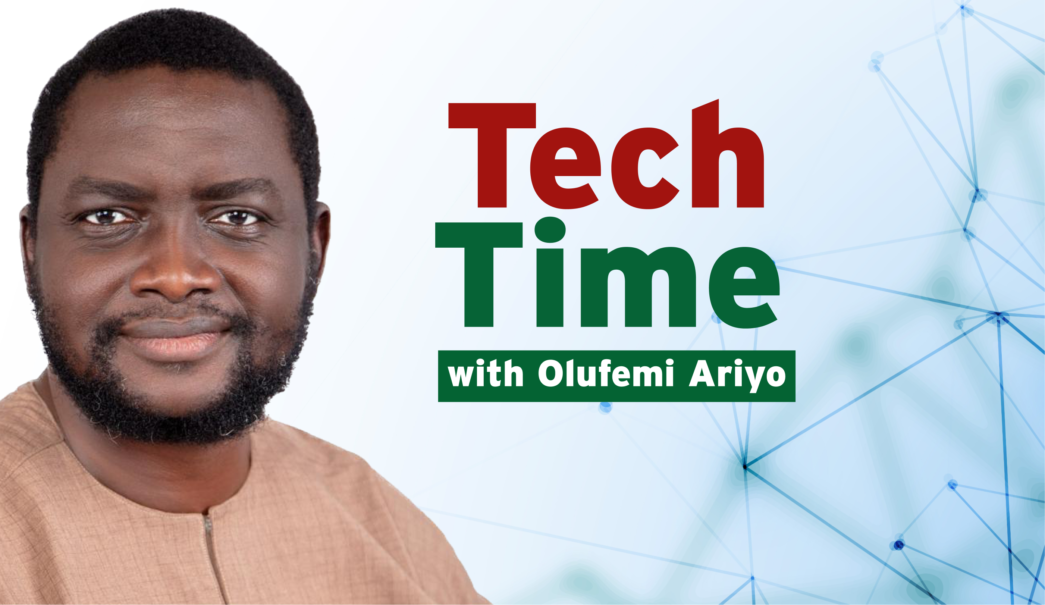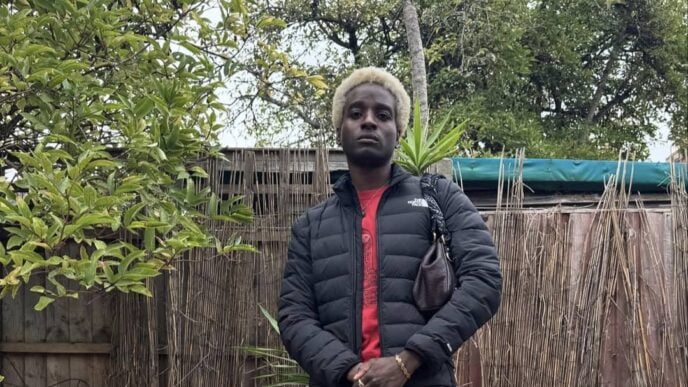“Artificial Intelligence will not replace people — but people and nations that use AI will replace those that don’t,” notes Olufemi Ariyo, capturing a truth that defines our era. As the world races deeper into an AI-powered future, the question confronting Africa is not whether it will embrace artificial intelligence, but how it will harness it to drive inclusive growth and social transformation. Across advanced economies, AI has become the new engine of productivity, innovation, and global competitiveness. Yet much of Africa still lingers at the periphery — consuming imported systems designed elsewhere, often misaligned with local needs, cultures, and values. To shape its destiny in the Fourth Industrial Revolution, the continent must move from adoption to creation — developing AI that reflects African realities, serves African aspirations, and is governed by African ethics. In doing so, Africa can redefine its role in the global digital order — not as a follower, but as a co-architect of the intelligent future.
- Understanding the AI Divide
The “AI Divide” refers to the widening gap between countries and societies that are creating and deploying AI solutions, and those that are primarily consuming them. This divide is not purely technological — it also reflects disparities in education, infrastructure, governance, and ethical frameworks.
Data Divide
Advertisement
Many developing regions, particularly in Africa, generate vast amounts of data daily in sectors such as health, agriculture, and commerce. However, much of this data is stored and processed outside the continent, often by non-African institutions.
- For example, health data from African countries is frequently hosted on foreign cloud services such as Amazon Web Services (AWS) or Google Cloud, which are largely managed from data centres in Europe or the U.S.
- In contrast, countries like China have established strong domestic data governance frameworks, ensuring that most national data is processed within their borders by companies such as Alibaba Cloud and Huawei Cloud.
- Efforts like the Smart Africa Alliance and Data for Development (D4D) partnership between Orange and Sonatel in Senegal are emerging attempts to localise data management and promote African data sovereignty.
Talent Divide
AI innovation depends heavily on human capital — researchers, engineers, and data scientists. Yet, fewer than 5% of global AI researchers are based in Africa, with the majority concentrated in North America, Europe, and East Asia.
Advertisement
- Leading AI research labs such as DeepMind (UK), OpenAI (U.S.), and Baidu Research (China) are located in regions with robust ecosystems that attract global talent.
- Meanwhile, African AI talent often migrates abroad due to limited local opportunities. For instance, many graduates from African Institute for Mathematical Sciences (AIMS) or Carnegie Mellon University Africa (CMU-Africa) go on to work for multinational tech firms.
- Organisations such as Deep Learning Indaba, Zindi, and Data Science Nigeria are working to reverse this trend by building local communities of AI practitioners, offering mentorship, and creating opportunities for homegrown innovation.
Infrastructure Divide
Robust infrastructure — including broadband connectivity, cloud computing, and high-performance computing (HPC) clusters — is crucial for AI development. However, much of sub-Saharan Africa lacks this foundational layer.
- The U.S. and EU benefit from dense networks of data centres operated by Microsoft Azure, Google Cloud, and AWS, which allow researchers to train large AI models efficiently.
- By contrast, most African countries have limited local computing power. South Africa, with initiatives like the Centre for High Performance Computing (CHPC) in Cape Town, is one of the few exceptions.
- Regional collaborations such as the African Union’s Digital Transformation Strategy (2020–2030) and the UN Economic Commission for Africa’s (UNECA) Smart Digital Infrastructure Initiative are attempting to address this gap through investment and policy alignment.
Bridging the Divide
Bridging the AI Divide requires a multi-stakeholder approach, integrating governments, academia, private sector innovators, and the African diaspora.
Advertisement
- Governments can create enabling environments through policies that encourage AI ethics, data sovereignty, and digital skills development, as seen in Rwanda’s National AI Policy (2023) and Kenya’s Digital Economy Blueprint (2019).
- The private sector can invest in local AI ecosystems, as Google did by establishing its AI Research Centre in Accra, Ghana, and IBM through its Research Lab in Nairobi, Kenya.
- Diaspora and international collaboration initiatives — such as AI4D Africa (a partnership between the International Development Research Centre and Swedish International Development Cooperation Agency) — play a key role in funding research and building networks that connect African innovators to global expertise.
- Building the Foundations: Policy, Data, and Infrastructure
Africa’s AI journey must begin with the fundamental enablers such as strong policy frameworks, accessible data ecosystems, and reliable infrastructure. These form the foundation upon which innovation, ethical governance, and inclusive economic growth can thrive.
- National AI Strategies
Developing a national AI strategy allows governments to set clear priorities for ethical AI use, human capital development, and innovation ecosystems. Such frameworks can also ensure that AI deployment aligns with local social and economic goals.
- Rwanda launched its National AI Policy in 2023, becoming one of the first African countries to formally outline a vision for AI-driven economic transformation. The policy emphasises responsible data use, capacity building, and local problem-solving — particularly in health diagnostics and smart agriculture.
- Through its Digital Economy Blueprint (2019) and subsequent Kenya National AI Strategy (2024), Kenya has been working to embed AI into national digital transformation goals. The strategy highlights AI for public service delivery, agriculture, and fintech, and promotes partnerships with universities and the private sector.
- Egypt’s National Artificial Intelligence Strategy (2021–2025), led by the Ministry of Communications and Information Technology, focuses on education, capacity building, and AI for sustainable development — especially in energy efficiency and water management.
These strategies set important precedents for other African nations.
Advertisement
- Nigeria’s Opportunity: Nigeria could build on these examples by establishing a National AI Development Council (AIDC) — a multi-stakeholder body that unites government ministries, universities, industry players, and the diaspora. This council could align national AI goals, coordinate funding, and strengthen collaboration with continental initiatives such as the African Union’s Continental AI Strategy (in development).
Example of inspiration:
- Canada launched the world’s first national AI strategy in 2017 (the Pan-Canadian AI Strategy) which invested heavily in research networks (e.g., CIFAR, MILA, and Vector Institute). A similar coordinated approach could nurture regional AI research excellence in Africa.
- Data Sovereignty and Accessibility
AI systems rely on high-quality, contextually relevant data. Africa possesses some of the world’s most valuable and unique datasets — from agricultural yields and biodiversity to diverse linguistic and cultural data. However, these are often underutilised due to fragmented policies, lack of infrastructure, and foreign data hosting.
Advertisement
- Data Sovereignty: Nations must retain control over how their data is stored, accessed, and monetised. For instance, South Africa’s Protection of Personal Information Act (POPIA) provides a framework for data protection similar to the EU’s GDPR, setting a model for others to follow.
- Open Data Platforms: Governments can establish Open Data Portals that make anonymised datasets available for research and innovation.
- Kenya Open Data Initiative (KODI) has enabled developers and journalists to build tools using public data on health, education, and demographics.
- Ghana and Sierra Leone are piloting national open data policies to enhance transparency and innovation in governance.
- Learning from India: India’s National Data Governance Framework Policy (NDGFP) empowers local developers through open access to anonymised public datasets. This framework has fuelled innovations like Aadhaar (digital ID) and UPI (Unified Payments Interface) — both homegrown digital public goods that have transformed financial inclusion.
A similar approach in Africa could unleash innovation in AI applications tailored to local contexts — from predictive agriculture models to disease outbreak detection using local health data.
Advertisement
- Infrastructure for AI Innovation
Without access to computing power and reliable digital infrastructure, AI remains theoretical. To turn AI ambition into reality, African countries must invest in regional computing hubs, broadband connectivity, and shared digital resources.
- Regional AI Hubs:
- Initiatives like Smart Africa Alliance and the African Union’s Digital Transformation Strategy (2020–2030) promote the idea of regional digital commons — shared resources such as cloud computing, GPU clusters, and high-performance computing facilities that multiple countries can access.
- South Africa’s Centre for High Performance Computing (CHPC) is already serving as a continental model, providing computing power to researchers across Africa.
- Morocco and Egypt are also investing in national supercomputing centres that can support large-scale AI research.
- Public-Private Partnerships (PPPs):
- Global tech companies are beginning to invest locally. Google’s AI Research Centre in Accra, Ghana, focuses on AI solutions for African languages and health challenges.
- Microsoft’s Africa Development Centre (ADC) in Kenya and Nigeria nurtures engineering talent and supports innovation in local contexts.
- These models demonstrate how private-sector partnerships can complement public investment.
- Nigeria’s Potential — “AI Superlabs”:
- Nigerian universities such as University of Lagos, Covenant University, and Ahmadu Bello University could host AI Superlabs — shared innovation spaces equipped with GPUs, cloud access, and datasets for experimentation.
- These labs could collaborate with innovation hubs like CcHub (Lagos), Wennovation Hub, and AI Saturdays Lagos to foster practical research in areas like speech recognition for African languages, climate adaptation, and epidemic forecasting.
- Funding could come from a mix of government grants, African Development Bank’s (AfDB) ICT funds, and partnerships with private firms and international donors.
In summary, Africa’s path to inclusive AI development starts with clear policy direction, data sovereignty, and infrastructure investment. By learning from successful global models (such as India’s data governance, Canada’s research strategy, and China’s computing ecosystems) and adapting them to local realities, African countries can build resilient, homegrown AI ecosystems that serve the continent’s needs rather than merely consuming foreign technologies.
Advertisement
- Investing in People: Talent and Skills for the AI Economy
Technology only scales when people are ready and empowered to use it. Building a strong AI economy in Africa depends on investing in education, research, and real-world experience — ensuring that every stage of the learning pipeline, from schools to startups, supports AI literacy and innovation.
- AI in Education: Building Literacy from the Ground Up
AI should not be treated as an advanced or exclusive topic — it must be woven into the mainstream education system from early on. Teaching AI literacy means going beyond coding to include critical thinking about algorithms, data ethics, bias, and responsible digital citizenship.
- Primary and Secondary Level:
- South Africa has taken early steps by integrating coding and robotics into its national curriculum for Grades 4–12 (launched in 2021). Expanding this to include topics like data ethics, AI in everyday life, and digital citizenship can prepare learners for an AI-driven world.
- In Egypt, the Knowledge Bank initiative provides open access to AI-related educational resources for students and teachers nationwide.
- Rwanda’s Smart Classroom Project equips schools with digital tools and teacher training, creating fertile ground for future AI curricula.
- Global Inspiration:
- Finland’s “Elements of AI” (a free online course that introduces citizens to AI concepts) has been adopted in over 170 countries. African nations could adopt or adapt similar open educational resources in local languages to democratise AI learning.
By embedding AI literacy early, Africa can nurture a generation that doesn’t just consume AI technology but critically understands and shapes it.
- University–Industry Partnerships: Bridging Theory and Practice
Universities must become innovation engines, not just centres of theoretical learning. Collaborations between academia and industry can accelerate applied research, product development, and entrepreneurship in AI.
- Some Examples in Africa:
- Carnegie Mellon University Africa (CMU-Africa) in Rwanda runs graduate programs that combine academic rigour with industry-driven projects in data science, robotics, and AI for public health. Students work directly with companies such as IBM, Safaricom, and Google on practical problems.
- University of Nairobi partners with Microsoft ADC to run joint research projects and internships in AI and software engineering.
- University of Lagos and CcHub have launched AI innovation challenges where students co-develop prototypes tackling local problems like waste management, language translation, and crop disease detection.
- In Egypt, the Information Technology Industry Development Agency (ITIDA) links universities with local AI startups to promote applied machine learning projects in fintech and smart cities.
- Global Best Practice:
- The MIT–IBM Watson AI Lab in the U.S. is a leading model where academia and industry co-develop cutting-edge AI research. Similar co-labs in Africa could focus on AI for social good — from agriculture to renewable energy.
Such partnerships can ensure that African graduates understand AI concepts and can apply them to real-world African challenges.
- AI Bootcamps and Fellowships: Scaling Skills Rapidly
While universities build long-term capacity, bootcamps and fellowships can rapidly upskill youth and professionals in AI and data science — particularly in countries with limited higher education infrastructure.
- Zindi: A pan-African data science competition platform where over 60,000 data scientists from across the continent collaborate and compete to solve local challenges — such as predicting air quality in Nairobi or optimizing agriculture in Ethiopia.
- Deep Learning Indaba: A continental movement that brings together AI researchers, students, and engineers for an annual training and networking event. Since 2017, it has grown into one of the largest AI communities in the Global South, inspiring national spin-offs like IndabaX Nigeria and IndabaX Kenya.
- Data Science Nigeria (DSN): Operates as a social enterprise that trains thousands of young Nigerians through bootcamps, online courses, and an AI+ incubator program. DSN aims to make Nigeria one of the top 10 AI talent pools globally by 2030.
- AI4D Africa Scholarships: Supported by the International Development Research Centre (IDRC) and Swedish International Development Cooperation Agency (Sida), this initiative funds African students and researchers pursuing AI for development-focused projects.
- Google’s AI Residency Program (Ghana): Offers mentorship and research opportunities to African graduates interested in machine learning, giving them access to global networks and resources.
Governments can amplify these efforts by:
- Offering national AI fellowships for postgraduate research.
- Hosting AI challenge competitions that crowdsource innovative solutions to public-sector problems (e.g., agriculture, education, health).
- Providing micro-grants or innovation vouchers for youth-led AI startups.
Example: Rwanda’s National Research and Innovation Fund (NRIF) supports early-stage technology research and could be expanded to fund AI-specific fellowships and hackathons.
In summary, investing in people is the most sustainable way to secure Africa’s AI future.
By:
- embedding AI literacy into school systems,
- strengthening university–industry collaboration, and
- scaling training programs and fellowships,
Africa can cultivate a generation of AI creators (not just consumers) who design solutions for African realities.
This human capital foundation will be the true engine of the continent’s AI revolution.
- The Diaspora Advantage: Turning Brain Drain into Brain Circulation
For decades, Africa’s brightest minds have migrated abroad in search of better opportunities — a phenomenon often described as “brain drain.” However, the rise of digital collaboration, global research networks, and remote work has created an opportunity to transform that narrative into “brain circulation.”
This shift reframes the African diaspora not as a loss, but as a strategic asset — a global network of experts who can connect knowledge, capital, and innovation between continents. Thousands of Africans working in Silicon Valley, London, Toronto, and other tech hubs are now key players in global AI research, entrepreneurship, and policy. The goal is not to bring everyone home, but to build pipelines for collaboration — ensuring that expertise, mentorship, and innovation flow freely both ways.
- Harnessing the Diaspora’s Expertise
Many Africans in the diaspora occupy leadership roles in global AI companies, research labs, and universities. Creating structured mechanisms for collaboration between them and African institutions can dramatically accelerate skills transfer and innovation.
- Some Examples of Diaspora Impact:
- Timnit Gebru (Ethiopia) – Former co-lead of Google’s Ethical AI team and now founder of the Distributed AI Research Institute (DAIR), which operates a decentralised model connecting AI researchers globally, including in Africa.
- Moustapha Cissé (Senegal) – Founder of Google AI Ghana, and previously head of Google’s AI research efforts in Accra. He actively mentors African AI researchers and supports local capacity-building through programs like Black in AI.
- Joy Buolamwini (Ghana/USA) – Founder of the Algorithmic Justice League, which advocates for ethical AI and algorithmic fairness. Her global influence on AI ethics highlights how diaspora expertise can shape both global and African AI policy discourse.
- Sabelo Mhlambi (South Africa) – Research fellow at Harvard’s Berkman Klein Center, working on AI ethics and decoloniality, bridging philosophical perspectives between Africa and the West.
These examples show how diaspora professionals are already leading efforts that can feed directly into African AI ecosystems if coordinated through formal networks.
- Building Collaboration Pipelines: The African AI Fellowship Network
To institutionalise this exchange, Africa could establish an African AI Fellowship Network — a platform connecting diaspora experts with African universities, research labs, and innovation hubs.
Such a network could:
- Pair diaspora researchers with African graduate students for co-supervision of theses or joint publications.
- Organise virtual masterclasses and webinars, where diaspora professionals teach emerging AI topics (e.g., NLP for African languages, ethics in machine learning, computer vision in healthcare).
- Facilitate co-creation of open-source AI tools addressing local challenges — from climate adaptation to local language translation models.
- Offer reverse fellowships, where African-based researchers spend short residencies at partner institutions abroad to access advanced labs and resources.
Model Example:
- AI4D Africa (Artificial Intelligence for Development in Africa) — A partnership between the International Development Research Centre (IDRC) and Swedish International Development Cooperation Agency (Sida) — already connects African researchers with global peers to develop AI solutions for sustainable development, such as precision agriculture in Kenya or disease prediction systems in Uganda.
- Black in AI, co-founded by Dr. Timnit Gebru and Dr. Rediet Abebe (Ethiopia), serves as another model. It provides mentorship, networking, and research exposure for Africans and diaspora researchers working on AI ethics, fairness, and inclusivity.
If scaled continentally, such a fellowship network could anchor a Pan-African AI Knowledge Exchange Platform, supported by the African Union, UNESCO, or the African Development Bank (AfDB).
- Brain Circulation in Action: Global Examples to Learn From
Other regions have successfully turned brain drain into a brain circulation model — demonstrating what Africa can emulate:
- India: The Indian tech diaspora in Silicon Valley played a major role in building the domestic startup ecosystem by investing, mentoring, and transferring knowledge back home. Many founders of India’s largest tech firms (e.g., Infosys, Flipkart) had international experience before returning or collaborating from abroad.
- China: Through its Thousand Talents Program, China encouraged overseas scientists and entrepreneurs to collaborate with domestic universities and companies without requiring permanent relocation. This model helped seed China’s rapid rise in AI and advanced research.
- Israel: Its global diaspora network actively contributes to Israel’s innovation ecosystem by linking local startups with global markets, research partnerships, and venture capital.
A similar model (supported by policy incentives and digital collaboration tools) can empower Africa to mobilise its global talent base without relying on physical relocation.
- Policy and Institutional Support for Brain Circulation
To make brain circulation sustainable, African governments and institutions can take several steps:
- Establish Diaspora AI Collaboration Offices within ministries of technology or education to manage partnerships, fellowships, and visiting scholar programs.
- Offer joint research grants where diaspora-led projects partner with African universities or innovation hubs.
- Create tax incentives or matching funds for diaspora investors who support AI startups in Africa.
- Use digital platforms (e.g., LinkedIn, ResearchGate, or custom portals) to maintain an active database of diaspora professionals available for collaboration.
Example:
- Nigeria’s Nigerians in Diaspora Commission (NiDCOM) already connects professionals abroad with local projects. A dedicated AI and Emerging Tech Desk under NiDCOM could formalise partnerships between Nigerian AI experts abroad and local institutions like Data Science Nigeria or NITDA’s AI Research Scheme.
In summary, the African diaspora represents one of the continent’s most powerful untapped AI resources. By shifting from brain drain to brain circulation, Africa can:
- Accelerate capacity-building through mentorship and collaboration.
- Leverage global networks for funding, research, and innovation.
- Ensure that AI solutions designed abroad are informed by African contexts and values.
This model of mutual knowledge flow — where the diaspora strengthens African ecosystems while Africa enriches global AI discourse — will be central to building a sustainable, inclusive AI future for the continent.
- Ethical, Inclusive, and Contextual AI
AI must not only be powerful but must be responsible, inclusive, and culturally grounded.
The rapid adoption of AI across Africa presents an extraordinary opportunity to address local challenges, from healthcare to education. Yet, if these systems are trained on foreign datasets or guided by non-African value frameworks, they risk reinforcing inequality, bias, and misrepresentation rather than alleviating them.
As Dr. Timnit Gebru, founder of the Distributed AI Research Institute (DAIR), warns that, “When you build AI systems without the people who are most affected by them, you risk encoding their exclusion into the technology itself.” Imported AI models (developed primarily in North America, Europe, and China) often fail to understand or reflect African realities.
- Face-recognition algorithms trained on predominantly light-skinned datasets have been shown to misidentify darker skin tones up to 35% more frequently, according to research by Joy Buolamwini and Timnit Gebru at MIT’s Gender Shades Project.
- Natural language processing (NLP) models such as OpenAI’s GPT or Google’s BERT historically performed poorly on African languages like Yoruba, Swahili, and Zulu because these languages were underrepresented in global training data.
- Chatbots deployed by international banks or government portals in Africa sometimes misinterpret local idioms or multilingual phrases (e.g., “pidgin” or “code-mixing” between English and Hausa), highlighting the gap between imported systems and local speech patterns.
As UNESCO’s Recommendation on the Ethics of Artificial Intelligence (2021) emphasises, that “AI systems must be developed and deployed in ways that ensure human rights, inclusion, and diversity, reflecting the cultural and social contexts in which they operate.”
- Developing Local Datasets that Represent African Diversity
For AI to “understand Africa,” it must be trained on African data — responsibly collected, diverse, and inclusive.
- Masakhane — a grassroots research community of African NLP practitioners — is building open-source translation models for dozens of African languages. Their motto, “For Africans, by Africans,” embodies the spirit of data sovereignty and cultural representation.
- Lacuna Fund, co-managed by IDRC, org, and The Rockefeller Foundation, supports the creation of inclusive African datasets in agriculture, health, and language technology.
- Data Science Nigeria and AI Kenya are also curating locally relevant datasets for education, weather prediction, and disease mapping — ensuring data reflects the realities of local communities.
By developing datasets that mirror Africa’s linguistic, ethnic, and environmental diversity, African innovators can counter algorithmic bias and create tools that see, hear, and understand African lives accurately. As Dr. Moustapha Cissé, founder of Google AI Ghana, puts it, “AI can only be as good as the data it learns from, and Africa’s data is as rich and diverse as its people.”
- Applying Ethical AI Principles: Fairness, Transparency, Accountability
Ethical AI is not optional — it’s foundational. African governments, researchers, and developers must embed principles of fairness, transparency, and accountability into every stage of AI development.
- Fairness: AI models must not discriminate by race, gender, language, or geography. For instance, recruitment algorithms used by global companies should be audited to ensure they do not undervalue African qualifications or accents in automated screenings.
- Transparency: Users should understand how AI systems make decisions. Initiatives like Algorithmic Transparency Labs (South Africa) and AI Ethics Africa advocate for explainable AI models that align with public interest.
- Accountability: Governments should establish clear regulations ensuring that AI applications comply with human rights standards — similar to South Africa’s Protection of Personal Information Act (POPIA) and Kenya’s Data Protection Act (2019), which lay the groundwork for ethical AI governance.
As Professor Tshilidzi Marwala, former Vice-Chancellor of the University of Johannesburg and author of Artificial Intelligence and the Fourth Industrial Revolution, notes: “Ethical AI in Africa must be built on ubuntu — the philosophy that ‘I am because we are.’ This ensures that technology enhances human dignity and social harmony.”
- Designing AI with Communities, Not Just for Them
Inclusive AI design requires interdisciplinary collaboration — bringing together not only computer scientists but also sociologists, linguists, historians, and community leaders. When AI systems are co-created with the people they aim to serve, they are more likely to reflect real needs, respect cultural norms, and gain public trust.
- The UNDP Accelerator Lab in Ghana co-designed a digital agriculture assistant with local farmers, ensuring the system used familiar dialects and locally relevant farming data.
- Mozilla Common Voice Africa engages communities across 13 countries to record and validate speech in African languages — a citizen-driven approach to building open, inclusive AI resources.
- AI4D Africa actively includes social scientists in its research programs to assess the societal impact of AI on education, employment, and inequality.
As UNDP Africa highlighted in its 2022 report on digital transformation, that “Technology designed without the participation of those it serves risks deepening exclusion. True innovation in Africa must be participatory and context-aware.”
- Building “AI That Speaks African”
The ultimate goal is not just ethical compliance, but cultural resonance — building “AI that speaks African.” That means AI systems that understand African languages, accents, and idioms; respect local values; and address problems that matter to African people. This vision aligns with the call by Dr. Nanjira Sambuli, Kenyan digital policy expert and member of the UN Secretary-General’s High-Level Panel on Digital Cooperation, that “Africa must not simply be a consumer of global AI systems — it must define what ethical and equitable AI looks like for its own people.” By embedding ethics, inclusivity, and context into AI development, Africa can lead a new paradigm: AI grounded in empathy, equity, and identity — technology that not only works in Africa but also for Africa.
In summary, ethical and contextual AI is about ownership of narrative and representation.
When Africa develops AI that reflects its voices, values, and visions, it contributes not only to local progress but also to global diversity in technological thought.
This is how Africa can build AI that speaks African — technology that listens to its people, learns from its diversity, and amplifies its collective aspirations.
- Practical Pathways Forward
Translating Africa’s AI vision into tangible progress requires coordinated action, strategic investment, and inclusive collaboration. The continent already possesses the talent and ambition — what’s needed now is a roadmap for execution. Below are key pathways that can transform vision into measurable outcomes.
- Launch an “AI for Development Fund”
AI innovation in Africa thrives when entrepreneurs and researchers have access to early-stage capital. Many promising startups struggle to scale due to a lack of funding tailored to AI-driven solutions addressing social needs. An “AI for Development Fund” could serve as a continental or national seed fund dedicated to startups leveraging AI in agriculture, healthcare, education, and public services.
- The African Development Bank (AfDB) and UN Economic Commission for Africa (UNECA) could co-launch such a fund, similar to the India AI Mission (2023), which provides public funding for socially impactful AI innovation.
- Rwanda’s Innovation Fund and South Africa’s Technology Innovation Agency (TIA) already finance early-stage digital startups — expanding these to include AI-focused grants could catalyse local ecosystems.
- A pan-African version could follow the model of AI4D Africa, which funds research that directly supports the Sustainable Development Goals (SDGs).
In addition, here are some use cases:
- Agriculture: AI-driven pest detection systems like Hello Tractor (Nigeria) or Aerobotics (South Africa) could receive funding to scale regionally.
- Health: Startups like mPharma (Ghana) could use AI for predictive drug supply management.
- Education: EdTech platforms such as Ubongo (Tanzania) could apply AI for adaptive learning and local language content.
- Create National AI Academies
Policymakers and civil servants must understand AI’s implications to regulate and leverage it effectively. A National AI Academy in each country can provide structured training for government officials, regulators, and civic leaders on AI governance, ethics, and public policy.
- The UK’s Office for AI runs an AI and Data Science Fellowship that embeds experts within government departments — Africa could replicate this model.
- Rwanda’s Centre for the Fourth Industrial Revolution (C4IR), established in partnership with the World Economic Forum, already trains officials on AI policy, data governance, and digital regulation.
- Egypt’s Applied Innovation Centre (AIC) hosts workshops on AI strategy implementation for government agencies — an approach that could be adopted continent-wide.
A Pan-African AI Academy, possibly hosted under the African Union’s Digital Transformation Strategy (2020–2030), could coordinate regional policy training, ensuring that AI governance aligns with African values and continental priorities. As Professor Bitange Ndemo, Kenya’s former ICT Principal Secretary, has said, “Before AI transforms Africa’s economies, it must first transform our policymakers’ understanding of what is possible and what must be protected.”
- Foster Regional Collaboration
AI innovation does not stop at borders — Africa’s success depends on regional coordination in research, data sharing, and standard-setting.
- The Smart Africa Alliance, with 30+ member states, is already building frameworks for cross-border data exchange and digital trade.
- The African Research Universities Alliance (ARUA) could coordinate regional AI research hubs — linking universities in Nigeria, Kenya, South Africa, and Egypt for shared access to computing infrastructure and expertise.
- Regional projects like the African Continental Free Trade Area (AfCFTA) can integrate AI as a tool for trade logistics, supply-chain optimisation, and digital identity management.
Collaborative research clusters can also align with the forthcoming African Union AI Strategy, ensuring interoperability and equitable access to data and infrastructure. As Amina J. Mohammed, UN Deputy Secretary-General, noted that, “Africa’s strength lies in unity — our collective data, innovation, and ideas can drive a new digital renaissance if shared wisely.”
- Leverage AI for Public Services
Governments can demonstrate AI’s societal value by embedding it into public service delivery — making governance smarter, faster, and more inclusive.
Practical applications include:
- Public Health: AI-powered predictive analytics can forecast disease outbreaks and optimise resource allocation. For instance, IBM’s AI system in South Africa helped model COVID-19 transmission patterns for better health responses.
- Energy: Smart grid management using AI can reduce energy losses — Kenya Power and Eskom (South Africa) are exploring machine learning to predict demand and improve grid reliability.
- Financial Inclusion: M-Pesa (Kenya) and Flutterwave (Nigeria) use AI to detect fraud and personalise financial services, expanding access for underserved populations.
- Climate and Environment: AI can aid in drought prediction, flood mapping, and crop yield optimisation, as seen in Google’s Flood Forecasting Initiative in sub-Saharan Africa.
These applications enhance efficiency while building public trust in AI when citizens see tangible improvements in daily life.
- Encourage Local Language AI Models
Language is the soul of culture — and for AI to be inclusive, it must speak Africa’s languages. Encouraging multilingual AI models ensures accessibility, preserves linguistic heritage, and enhances adoption.
- Masakhane: A community-driven research project creating open-source NLP models for over 50 African languages — proving that African voices can lead global innovation.
- Mozilla Common Voice Africa: Engages volunteers across the continent to build speech datasets for languages such as Swahili, Twi, and Amharic.
- Google AI Ghana has developed African language translation models and speech-to-text systems, helping bridge the communication gap in digital services.
- Meta’s No Language Left Behind (NLLB) project has partnered with African researchers to improve translation accuracy for underrepresented languages.
Governments can strengthen these efforts by funding national language technology programs, integrating AI into education and public communication, and encouraging startups to develop voice assistants, chatbots, and translation tools tailored to African users. As Dr. Nanjira Sambuli notes that, “For AI to empower Africans, it must first learn to listen to them — in their languages, on their terms.”
In summary, operationalising Africa’s AI vision requires bold coordination and practical investment:
- A fund to fuel innovation.
- Academies to build informed leadership.
- Regional hubs to connect talent and research.
- Public sector projects that demonstrate AI’s value.
- Local language models that make AI accessible to all.
By aligning these pathways under a shared continental strategy (supported by the African Union, AfDB, UNECA, and private sector partners) Africa can turn aspiration into action, and action into lasting impact. This is how Africa moves from being a participant in the global AI race to becoming a leader in AI for inclusive, sustainable development.
- Conclusion: From Consumers to Creators
“The future of AI in Africa will not be determined by what the world builds for us, but by what we choose to build for ourselves,” according to Dr. Tshilidzi Marwala. Africa stands at a defining crossroads in the age of intelligent machines — not as a passive participant, but as an emerging architect of its own technological destiny. The continent’s AI future must not be written in dependency, but in innovation, dignity, and self-determination. As Ngozi Okonjo-Iweala, Director-General of the WTO, once noted, “Africa’s future will not be built by imitation but by imagination.” The continent’s greatest advantage lies not in catching up, but in leapfrogging — using AI to solve uniquely African problems in ways that others have not envisioned. From local language models that “speak African,” to ethical frameworks grounded in ubuntu, Africa can build technology that mirrors its diversity, resilience, and creativity. As Dr. Moustapha Cissé, founder of Google AI Ghana, reminds us, “AI will only work for us if it’s made by us and speaks to our realities.”
If governments provide enabling policies, universities cultivate critical talent, and the private sector drives responsible innovation, Africa can transform from an AI consumer into a global co-creator. The next chapter of Africa’s digital story is not about importing algorithms but about exporting ideas — innovations that merge technology with social good. AI is not just a tool; it is, as Joy Buolamwini describes, “a mirror reflecting the values of its makers.” The question, then, is not whether Africa will join the AI revolution, but what kind of reflection it will offer the world — one that embodies inclusion, justice, and the boundless possibility of a continent that dares to define its own digital future.
Thank you for reading! If you found this insightful, please share and follow for more updates: Medium: https://medium.com/@roariyo, Twitter: https://twitter.com/ariyor, LinkedIn: https://www.linkedin.com/in/olufemiariyo/, Or email me: [email protected]













